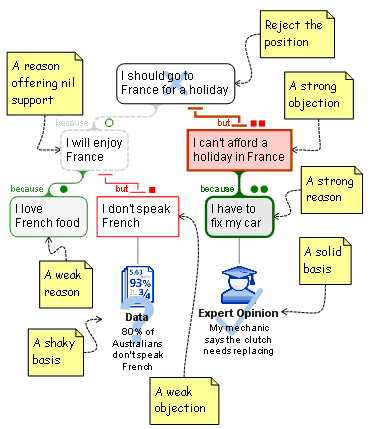The Science Of Scientific Writing Set 7 Set 7-Assessing • Second page • Third page • Fourth page • Example • Exercise 1 • Exercise 2 • Exercise 3 • Exercise 4 • Exercise 5 • Exercise 6 • Final Page Set 7.
OVERVIEW: The way to well-written science
PART I: Paragraphs and Sentences
SET A: Paragraphs: The Maps Behind Them
SET B: Paragraphs: Using Maps to Meet Readers' Expectations
SET C: Paragraphs with Something Extra: Points and Tails
SET D: The Generic Section: Expectations and Maps as Blueprints
SET E: Scientific Sections: The Methods and Results
SET F: Scientific Sections: The Discussion
SET G : Scientific Sections: The Introduction
SET H : Sentences
SET I : The Paper as a Whole
PART II: The Paper and its Sections
SET 1: Argument Parts
SET 2: Indicator Words
SET 4: Locating Arguments in Prose
SET 5: Rationale's Essay Planner
SET 6: Evidence in Arguments: Basis Boxes
Synthesis 1: Position-Early Paragraphs
Synthesis 2: Position-Final Paragraphs
Synthesis 3: Writing a Discussion I
Synthesis 4: Writing a Discussion II
Rationale shows your evaluation of an argument by allowing you to add colour-coding and icons to each claim or basis box:

Content of this page drawn in whole or part from the Austhink Rationale Exercises with permission from Austhink.